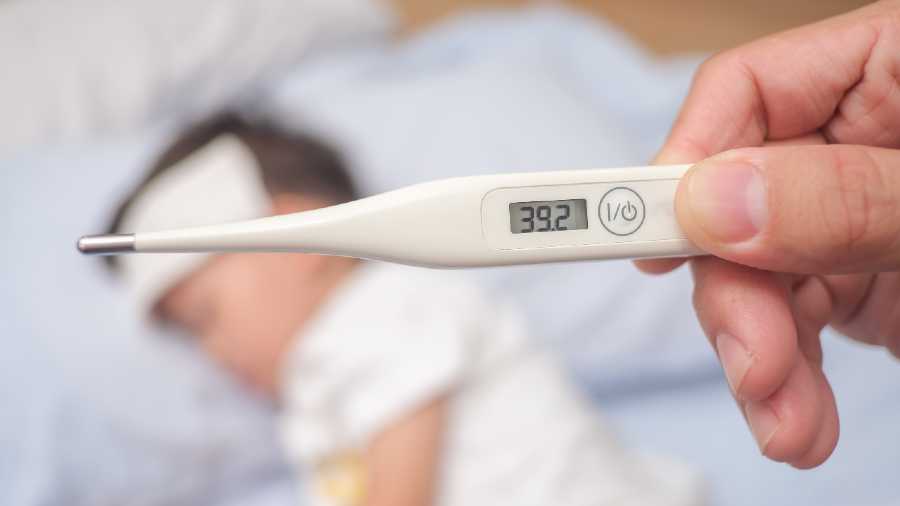A number of Kolkatans are still suffering from fever, cold and sustained cough, with some requiring hospital admission.
The outbreak started a few weeks ago, resulting in clinics being flooded with patients running a temperature and also suffering from cold and cough. Doctors then did not apprehend that the rate of infection would sustain for long.
But repeated fluctuations in temperatures and viral attacks together have helped the situation remain like this, doctors said.
Not just adults, a large number of children, too, are suffering from similar symptoms. Apurba Ghosh, director of the Institute of Child Health near Park Circus in south Kolkata, said many of the patients in the intensive care unit of his hospital were suffering from respiratory distress.
The mercury has been in a see-saw mode in Kolkata. On February 4, the Celsius slid to 14.7 degrees, the lowest in three weeks. The dip came after a prolonged warm spell. But the minimum shot up to 20.1 degrees by February 9. A day later, it fell to 16.8 degrees.
The mercury has since been on the rise. On Sunday, the maximum temperature was 31.7 degrees, three notches above normal, and the minimum was 21.7 degrees, four notches above normal. The Celsius is likely to dip again in the next 48 hours, but the drop will be short-lived, the Met office said.
Chandramouli Bhattacharya, infectious disease expert at Peerless Hospital, said fever, cold and cough are common during this time of the year. But this year, he said, an unusually high number of patients have been suffering from such symptoms and the spell of infection has been longer than expected.
“The most common symptoms are fever, which continues for a day or two, and a bothersome, dry cough for seven to 10 days. It is the cough that is taking most of the patients to physicians," Bhattacharya said.
"While healthy people are recovering at home, it is the elderly and those with comorbidities like COPD who are requiring hospital admission. Some of them are requiring non-invasive ventilation," said Bhattacharya.
An official at Peerless Hospital said about 25 patients were being treated for respiratory distress in the intensive therapy unit on Sunday.
The three units of AMRI Hospitals together treated 87 “flu/viral disease” patients on Sunday. Of them, 29 were in need of critical care, said an official of the group.
The temperature fluctuations lead to greater activity of the viruses and also make the upper respiratory tract more vulnerable to viral attacks, said Amitabha Saha, head of critical care at AMRI Mukundapur.
